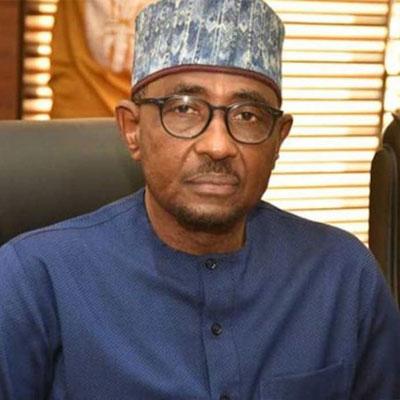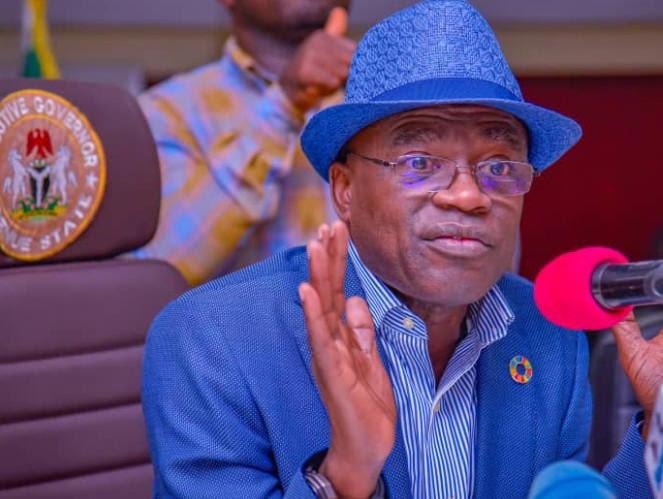Despite ongoing expansion in domestic refining capabilities across West Africa, the region continues to depend heavily on fuel imports, with nearly 69 per cent of gasoline supply still coming from overseas markets.
This was revealed by the Chief Executive of the Nigerian Midstream and Downstream Petroleum Regulatory Authority (NMDPRA), Farouk Ahmed, on Tuesday at the Global Commodity Insights Conference on West Africa’s refined fuel market, jointly organised by the NMDPRA and S&P Global Commodity Insights in Abuja.
Ahmed said the reliance on imports persists even as countries like Nigeria, Ghana, Niger, Senegal, and Côte d’Ivoire have made significant progress in boosting local refining capacities, which now stand collectively at 1.335 million barrels per day.
According to him, “Our 2025 statistical data for fuel supply in the West African region reveals that 2.05 million MT per month of Gasoline is being traded, consisting of 1.44 million MT (69 per cent) imports and 0.61 million MT (31 per cent) refinery contribution from the region.”
He stressed that the current situation highlights the region’s continued dependence on external supply chains despite the transformation of its refining landscape.
“Regional supply of fuels in West Africa has grown through improved refining capacities in Nigeria, Ghana, Niger, Senegal and Côte d’Ivoire, which currently stands at 1.335 million barrels per day,” he said.
Ahmed further noted that West Africa, despite being a significant hydrocarbon producer and growing refining hub, still relies on pricing benchmarks dictated by far-off markets such as Northwest Europe, the US Gulf Coast, Singapore, and the Arab Gulf.
Read also: Tension as driver rams into bystanders in Sagamu, 1 dead
“These global benchmarks do not fully reflect the unique supply chain peculiarities, logistics costs, and economic realities of the African continent,” he stated.
He added that the absence of a regional pricing benchmark has posed challenges to transparency, investment, and the efficiency of supply chains in the regional fuel market.
“As a region, we must begin to define our own pricing reality. Establishing a regional price index will not only improve price discovery and transparency but also deepen market development and enhance energy security,” he said.
Recent reforms
Highlighting Nigeria’s recent reforms, Ahmed said that under the leadership of President Bola Tinubu, key initiatives such as the Petroleum Industry Act 2021 and the liberalisation of the downstream sector have made Nigeria more attractive to petroleum sector investments.
“These reforms are attracting investment into trade zones, digital market platforms, and refining projects,” he noted, adding that Nigeria is fast emerging as a key midstream and downstream trade and logistics centre for the entire West African coast.
He also pointed to Nigeria’s maritime advantages as a catalyst for regional leadership in fuel distribution.
“Nigeria’s deep seaports, improved maritime infrastructure, and an active coastline make the country strategically positioned to serve as a fuel distribution hub across the region,” he said.
According to Ahmed, the Nigerian refining sector is undergoing a significant transformation, with the Dangote Refinery and the ongoing rehabilitation of state-owned refineries expected to increase local production considerably.
OPEC outlook
Referencing the OPEC World Oil Outlook, Ahmed stated that Africa is projected to add 1.2 million barrels per day of refining capacity between 2025 and 2030, with West Africa expected to play a substantial role in that expansion.
To support the regional market’s evolution, Ahmed said the NMDPRA is working in partnership with S&P Global Commodity Insights to develop price indices tailored to the West African energy market.
“Our partnership with S&P Global aims to leverage their world-class market intelligence and our regulatory experience to launch pilot indices tailored to the West African energy market,” he added.
The proposed benchmark, he noted, will promote confidence in the market, draw more investments in storage and supply infrastructure, and improve real-time price visibility across the fuel value chain.
“We are committed to building a transparent, data-driven market that reflects the true cost and value of fuel within West Africa,” Ahmed concluded.
Afrocover learnt that the event was convened to explore the creation of a regional pricing benchmark aimed at enhancing price discovery, promoting transparency, deepening market development, and improving energy availability across West Africa.
Presidents Tinubu’s emphasis
Earlier in a post on his official X handle, President Bola Tinubu stressed the need for Africa to shift from being a passive price taker to an active participant in shaping the global energy pricing and regulatory landscape.
“Africa can no longer remain a price taker for its resources. It is time to establish credible, transparent benchmarks that reflect our realities and protect our economies,” Tinubu said in a post on his X handle.
According to him, Nigeria is actively collaborating with regional partners to build an integrated market that supports local production, ensures energy access for citizens, and promotes cross-border prosperity.
“From refining to regulation, data transparency to trade flows, Nigeria is working with regional partners to build an integrated market that rewards our production, secures energy for our people, and deepens prosperity across borders,” the president stated.
He described the conference as a critical step for Africa to assert greater control over its energy value chain by establishing a reference market led by the continent.
“Through this strategic platform, we are creating a transparent, Africa-led reference market that is rooted in collaboration, regulatory alignment, and economic self-determination,” he noted.
Tinubu called for urgency and unity in pricing and trading African energy resources for the benefit of future generations.
“This is how we take ownership of our value. This is how we shape our energy future. We must price what we produce, trade on our terms, and secure value for our economies and future generations,” he said.









